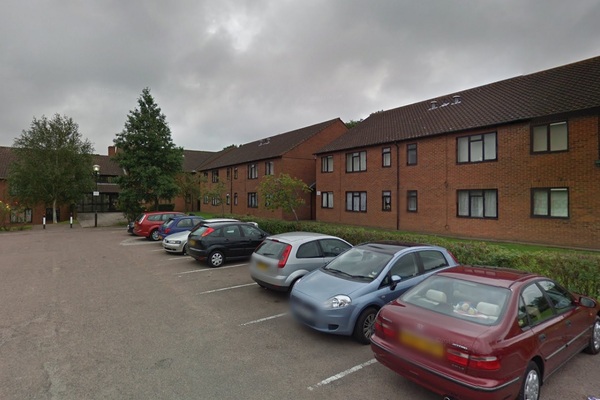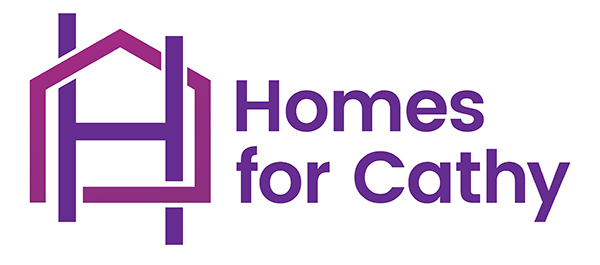You are viewing 1 of your 1 free articles
How to end evictions from social housing
One landlord in Wales aims to avoid evicting anyone – or as close as it can get. Jess McCabe reports on how it is doing so. Illustration by Barry Falls
Evictions are just a part of the job of being a social landlord. No one wants to evict tenants, but sometimes things go wrong and the landlord has to start possession proceedings.
That is the received wisdom. But what if landlords just decided not to?
Inside Housing spoke to a housing association in North Wales that is grappling with this question. We wanted to find out why it is implementing this drastic change – and how it is making it work.
ClwydAlyn has 6,000 homes across seven counties in North Wales, as well as supported living schemes, care services and other tenures. Until last year, it had been evicting about 19 or 20 households a year.
But then in April, the association brought in its new policy – working towards no evictions.
Since then, it has evicted only three households. Two of these involved tenants who no longer lived at the property, so no one was being forced into homelessness. One was a much trickier case, which we will come back to later in this article. But the upshoot is a drastic reduction of roughly 80%. If the question is, “can we end evictions?”, this suggests the answer is at least an “almost”.
So why is ClwydAlyn doing this in the first place?
It is important to note that this is not happening in a vacuum – it is part of what Shelter Cymru told us was a “change in the air” in Wales, following campaigning from that organisation to reduce about 500 to 700
evictions a year from social housing.
There was also a push from the Welsh government, which has linked its rent settlement to a policy of “no evictions into homelessness”.
ClwydAlyn was also learning from the experiences of other landlords. Wales & West Housing, for example, has been doing something similar for seven or eight years. The association, which has about 12,500 homes, serves around 20 notices seeking possession a year now. (Typically social landlords might serve hundreds of these, they say, not always with any real intention of going through with an eviction.)
“Everybody’s got to live somewhere”
Shayne Hembrow, deputy chief executive of Wales & West, says evictions are now in the “low single figures” every year, compared with 40 or 50 before the change in approach.
But back to ClwydAlyn. Clare Budden has been chief executive for a little under two years. Within six months, she had kicked off a process of re-examining the organisational mission, or as she puts it more bluntly, “what we are here for”. The answer, the association decided, was poverty. The organisation considered the statistics on the areas in which it operates and saw that people in the poorest neighbourhoods still had a lower life expectancy.
At least for their own tenants, the cause was not poor housing stock. “Some are probably the best homes in the UK,” Ms Budden notes.
But “just providing people with a safe, warm, wind and weathertight property wasn’t enough”.
Then the organisation started to look at what Ms Budden terms “negative spend” – money the association was pouring into chasing rent arrears, anti-social behaviour, repairing properties, pursuing evictions and then allocating the homes again once they are empty.
The aim was to avoid spending some of this money and instead redirect it into activities that can sustain tenancies and alleviate poverty.
Ending evictions seemed to be a win for everybody: if families can stay in their tenancy, it costs the landlord less. That family avoids being evicted. Ms Budden notes that having to move often is known to cause stress and damage to families with children, sometimes with spiralling knock-on effects.
Moreover, evicting does not really solve the problem for that individual or family. “Everybody’s got to live somewhere,” Ms Budden points out.
But how is ClwydAlyn actually going about preventing those evictions?
Ms Budden says the answer is making very small changes. She cannot put a number on the investment required – the association has created one extra job in tenancy sustainment but this person has not yet been appointed. “We’re only eight months into this. We’ve made very small changes at this stage. Our aim is over time to spend more money on preventing problems,” she explains.
“We’ve just decided to approach problems in tenancies in a different way,” she adds.
Clare Budden, chief executive of ClwydAlyn
However, this belies the effort involved in what is a huge cultural change. There was some initial resistance from housing officers, who were worried they could not get tenants to work with them without possible eviction as a consequence.
Instead, the idea is to have a better relationship with tenants, and to intervene early – when the first rent payment is missed rather than when arrears are out of hand.
“Sometimes you do need to move people for the neighbours. They are small in number, those cases”
Suzanne Mazzone, head of income and service improvement at Clwyd-Alyn, says: “If they’ve gone over by £500 or £1,000, it’s beyond people’s ability to think how they’re going to manage that. When the first payment is missed we need to find out why and offer support. It’s much easier to manage then.”
Housing officers also meet every four weeks and discuss cases. If things are not working, the answer is not – as it might once have been – to send out demand letters. Instead they try different approaches, which could involve switching the case to a different housing officer, for example.
The solution might be helping the tenant move to a more affordable or suitable property. A move may also be used to help in anti-social behaviour cases, if the problem is localised.
“Sometimes you do need to move people for the neighbours. They are small in number, those cases,” says Ms Budden.
Wales & West’s Mr Hembrow talks about moving away from an “adversarial” relationship, with tenants getting letters through the door demanding payment. “You’ve got to get people very quickly. A personal response, ‘you’ve missed a payment, how can we help you?’,” he says.
A tenant’s perspective
“I lost my mum, and my dad passed away a week after that, and my son had a bike accident and I’ve had ill health.
“I just gave up really,” says Shirley* to explain how life events piled up on her and she ended up in such serious arrears that she feared losing her three-bedroom home.
Shirley lives with her three grown-up children (aged 24, 22 and 20) in a terraced house owned by ClwydAlyn. They have lived there for about 10 years, with the arrears starting to build up around the end of 2017. Shirley had not told her children about the debts.
“I think they were annoyed with me for not saying anything beforehand. It wouldn’t have got to the stage that it is,” she says.
One day she got a text from ClwydAlyn to get in touch urgently. “I was really stressed, I didn’t know what I was going to do. I thought, ‘That’s it, I’ve lost the house.’ I thought, ‘What am I going to tell my kids?’
“But it just got sorted. I just think they’re brilliant. They’ve gone out of their way for me to keep my house. Without anybody helping me I would be homeless by now.”
In practical terms, the housing association sorted out housing benefit issues, some grants and a support worker from charity Mind.
Shirley says: “I’d say to anyone who gets into this situation: talk about it. I feel a bit better in myself now.”
*Name has been changed.
Arrears are the leading cause of evictions (Ms Budden estimates about three-quarters). Both Clwyd-Alyn and Wales & West speak of looking at each case individually and considering if the cause is “can’t pay” or “won’t pay”. The latter makes up only a few cases.
It is all about a more human approach. For example, for tenants going onto Universal Credit and waiting five or six weeks for a payment, it may be unrealistic to expect them to pay their rent off in full once that comes through. One ClwydAlyn tenant got into trouble with arrears after leaving her partner and as a result ended up being stuck with no recourse to public funds. Her children are on the ‘at risk’ register. “If we evicted, those children would have to go into care,” Ms Mazzone explains.
Instead of taking this action, which of course would be devastating for the family, ClwydAlyn has been working with the tenant to help her to find work and get a ‘settled’ status, after which she will be able to access
benefits.
Suzanne Mazzone, head of income and service improvement at ClwydAlyn
“Once we get her settled status, we’ll write off the arrears. Otherwise it’s just another family in turmoil when they’ve already gone through so much,” Ms Mazzone says.
If that sounds like bad business sense, Ms Mazzone points out that ClwydAlyn would be highly unlikely to ever get the arrears back as the tenant could never afford it, and it would probably end up spending even more money.
“We have seen arrears go up,” Ms Mazzone admits. But this should be balanced off in the long run with costs avoided in other ways, such as voids and legal costs. “We might not have the lowest rent arrears in Wales,” says Ms Budden. But the association is also avoiding “the cost of evicting people and carrying that debt”.
‘No evictions into homelessness’
In December the Welsh government announced a rent settlement to increase rents by up to 1% above the Consumer Price Index.
But this had strings attached, including landlords being expected to “end eviction into homelessness”.
What this means in practice has not yet been fully formalised. Housing associations speak of preventing evictions, of course, but also delivering this by ensuring that the household has somewhere to go and will not be sleeping rough.
Jennie Bibbings, campaigns manager at Shelter Cymru, says: “There’s a change in the air. We’re having conversations with lots of housing associations now, including some that have historically caused us quite a lot of casework.”
Both Wales & West Housing and ClwydAlyn aim to go beyond no evictions into homelessness.
Shayne Hembrow from Wales & West says the association’s goal is “reducing the number of evictions we make for any reason, particularly for arrears, to the lowest level we can”.
“We keep people in their tenancy and we get them to pay their rent and a small amount off their arrears each month.
“It’s just about taking action very quickly before debt gets out of hand,” says Ms Budden.
Mr Hembrow says that for Wales & West, the main motivation is a “genuine desire to help people”. Still, there are secondary benefits for the organisation. “Collecting former tenant arrears is nigh on impossible,” he notes.
Wales & West also sometimes cancels arrears as a pragmatic measure, but Mr Hembrow points out that all landlords do this and Wales & West has not actually increased the amount it cancelled.
Let’s look again at those three evictions that ClywdAlyn says it was unable to avoid. Ms Mazzone says: “[Two] weren’t living in the property. It was the only way we could get that tenancy back.” Still, she admits: “The third one wasn’t the greatest of outcomes.”
This was a care leaver who had accumulated steep arrears and there were anti-social behaviour issues reported. Ms Mazzone lists the efforts the association’s staff went to – including finding her a personal advisor (all care leavers should have one of these supplied by the council to help them transition to independent adult life until age 25, but this tenant had not got one). However, she would not engage with the association and ultimately the association decided to evict. “Even on eviction day we worked… to hold a supported housing placement open for her,” she says. Unfortunately, the tenant did not take up the offer.
So, it is not perfection. Even with the best will in the world, it may not be possible to prevent every eviction. But trying does pay dividends.
Homes for Cathy Annual Conference
Inside Housing is pleased to join forces with Homes for Cathy to deliver the third edition of the Homes for Cathy Annual Conference, taking place on 23 March 2020 at the Congress Centre, London.
Supported by the Chartered Institute of Housing and Crisis, the conference will unite leaders and practitioners from housing associations, local authorities and charities to share real examples of the work being done to end homelessness. The event provides a platform for informed debate and discussion, examination and exploration around the good practices being used in the sector.
Homes for Cathy is a group of housing associations that were formed in the Cathy Come Home era. They came together in 2016 to mark the 50th anniversary of Cathy Come Home and to highlight the continuing needs of homeless people.
The Homes for Cathy group has been organising a range of local and national events over the past three years, with the aim of raising awareness of the needs of homeless people and working on strategies to end homelessness.
All surplus from the conference will go to the Homes for Cathy group to support its work bringing together housing associations, homelessness charities and local authorities to end homelessness.














